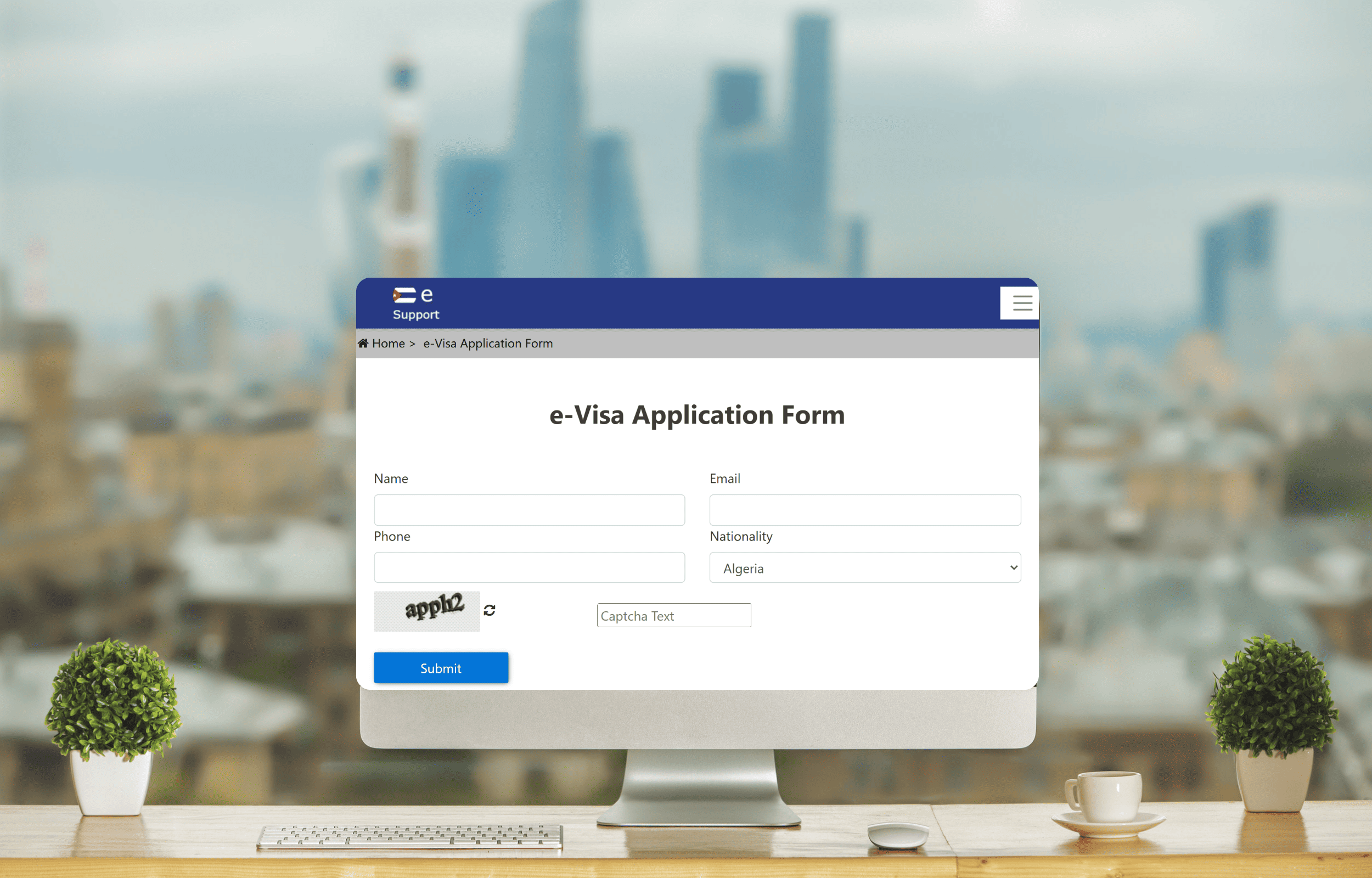
If you are not eligible for a Cuba Tourist Card, there is an alternative option to obtain a traditional paper visa for short-term travel to Cuba. This type of visa can be used for a variety of purposes, such as tourism, visiting family or friends, business trips, short-term education, exchange programs, short-term work, and more.
To apply for a traditional paper visa, you will need to review the specific requirements for your visa application type, including the necessary documents, visa fees, processing time, and where to apply. These requirements may vary depending on the purpose of your travel and your country of origin.
For example, if you are traveling to Cuba for business purposes, you may need to provide a letter from your employer or a business invitation letter from a Cuban organization. If you are traveling for educational purposes, you may need to provide documentation from your educational institution.
The visa processing time for a traditional paper visa may vary depending on your country of origin and the embassy or consulate where you apply. It is important to apply well in advance of your planned travel dates to allow for processing and shipping time.
The visa fees for a traditional paper visa may also vary depending on your country of origin and the type of visa you are applying for. You may also need to pay additional fees for visa application centers, courier services, or other administrative costs.
Overall, if you are not eligible for a Cuba Tourist Card, a traditional paper visa may be a suitable alternative for short-term travel to Cuba. Be sure to carefully review the specific requirements for your visa application type and apply well in advance to ensure a smooth and successful application process.
What is a Cuba Short-term Visa?
A Cuba Short-term Visa, also known as a Cuban Tourist Visa, is a document that allows foreign visitors to enter Cuba for a short period of time for purposes such as tourism, visiting friends or family, attending conferences or events, or conducting business activities. The Short-term Visa allows visitors to stay in Cuba for up to 30 days, and can be extended for an additional 30 days upon request.
It is important to note that the Cuba Short-term Visa is different from the Cuba Tourist Card. The Tourist Card is a simpler and more common option for visitors traveling to Cuba for tourism purposes, while the Short-term Visa is required for other purposes such as business or family visits.
Foreign visitors are required to have a valid Short-term Visa prior to entering Cuba, and it is typically issued by the Cuban embassy or consulate in the visitor's country of residence. The Short-term Visa is usually a single-entry visa, meaning that visitors will need to obtain a new visa if they leave Cuba and plan to return.
Who needs a Cuba Short-term Visa?
Anyone who plans to travel to Cuba for a short-term stay, including tourism, visiting family or friends, business trips, short-term education, exchange programs, or short-term work, may need to obtain a Cuba short-term visa. The specific type of visa required may depend on the purpose of the trip and the traveler's country of origin. In some cases, a Cuba Tourist Card may be sufficient for a short-term stay, while in other cases, a traditional paper visa may be required. It is important to carefully review the visa requirements and apply for the appropriate visa well in advance of your planned travel dates to ensure a smooth and successful application process.
Types of Cuba Short-term Visa
There are several types of short-term visas available for travel to Cuba, depending on the purpose of your trip. These include:
- Cuba Tourist Visa
- Cuba Business/Congress/Trade Fair Visit Visa
- Cuba Cultural, Scientific, Sports Events Visa
- Cuba Medical Visa
- Cuba Visiting Family and Friends Visa
- Cuba Study (Short-term) Visa
- Cuba Work (Short-term) Visa
How to apply for a Cuba Short-term Visa?

Foreign visitors who require a Cuba Short-term Visa can apply for it in one of two ways:
Applying directly at a Cuban embassy or consulate: The first option is to apply for a Cuba Short-term Visa in person at the Cuban embassy or consulate in your country of residence. This option may be preferable for those who want to have a physical visa stamp in their passport before traveling to Cuba.
Applying through a travel agency or tour operator: Another option is to apply for a Cuba Short-term Visa through a travel agency or tour operator that is authorized to provide visas. This option can be more convenient and time-saving, as the travel agency can assist with the application process and provide information on any additional requirements.
The application process for a Cuba Short-term Visa typically involves filling out an application form and providing the required documents, which may include a passport with at least six months of validity remaining, a travel itinerary, a letter of invitation if applicable, and proof of travel insurance. The visa processing time may vary depending on the embassy or consulate, but it is recommended to apply well in advance of your planned travel dates.
What are the requirements for a Cuba Short-term Visa?
To apply for a Cuba Short-term Visa, you will need to provide the following requirements:
A valid passport: Your passport must have at least six months of validity remaining beyond your planned stay in Cuba.
Completed application form: You will need to fill out an application form, which can be obtained from the Cuban embassy or consulate in your country of residence or through an authorized travel agency.
Travel itinerary: You will need to provide a detailed travel itinerary, including your dates of travel, accommodation arrangements, and transportation details.
Proof of travel insurance: Cuba requires all visitors to have travel insurance that covers medical expenses while in the country. You will need to provide proof of travel insurance that is valid in Cuba.
Letter of invitation (if applicable): If you are traveling to Cuba for business or to visit family or friends, you may need to provide a letter of invitation from your host in Cuba.
Visa fee: You will need to pay the visa fee, which varies depending on the embassy or consulate where you apply.
It is important to note that the requirements for a Cuba Short-term Visa may vary depending on the embassy or consulate where you apply, so it is recommended to check with the embassy or consulate or an authorized travel agency for specific requirements.
How much does a Cuba Short-term Visa cost?
The cost of a Cuba short-term visa can vary depending on the type of visa, the traveler's nationality, and the processing time. The Cuba Tourist Card, which is the most common type of short-term visa for tourism purposes, typically costs between $20 and $75 USD. Other types of short-term visas, such as business visas or student visas, may have higher fees. Additionally, travelers may need to pay additional administrative fees, such as visa application center fees or courier service fees, depending on the country and location of their documents' submission. It is important to carefully review the visa requirements and associated fees before beginning the application process to ensure that you have the necessary funds to cover all costs
How long is a Cuba Short-term Visa valid for?
A Cuba Short-term Visa is usually valid for a single entry and allows the holder to stay in Cuba for up to 30 days. However, it is possible to extend the visa for an additional 30 days once in Cuba, for a total of up to 60 days.
It is important to note that the maximum length of stay allowed in Cuba is 60 days, regardless of whether you have a Short-term Visa or a Tourist Card. If you plan to stay in Cuba for longer than 60 days, you will need to apply for an extension or a different type of visa.
It is also important to check the validity dates of your visa before traveling to Cuba, as the visa must be valid for the entire duration of your stay in the country. If your visa expires while you are in Cuba, you may face fines or deportation.
Can I extend my stay in Cuba with a Short-term Visa?

It may be possible to extend your stay in Cuba if you have a short-term visa, such as a Cuba Tourist Card or a traditional paper visa, depending on the type of visa and the specific circumstances of your trip.
If you have a Cuba Tourist Card, you can stay in Cuba for up to 30 days from the day of arrival, and you may be able to extend your stay for an additional 30 days by applying for an extension at the immigration authorities’ office.
If you have a traditional paper visa, such as a business visa or a student visa, the length of your stay may depend on the specific terms of your visa. Some visas may allow for longer stays, while others may have a fixed duration.
It is important to carefully review the terms of your visa and ensure that you comply with all requirements, including any limitations on the length of your stay. If you need to extend your stay, it is recommended that you apply for an extension well in advance of your planned departure date to ensure that your application is processed in time.
What are the consequences of overstaying a Cuba Short-term Visa?
Overstaying a Cuba Short-term Visa can result in a variety of consequences. The Cuban government takes immigration violations seriously and may impose penalties on those who overstay their visas.
If you overstay your Cuba Short-term Visa, you may be subject to the following consequences:
Fines: The Cuban government may impose fines on visitors who overstay their visas. The amount of the fine can vary depending on the length of the overstay.
Deportation: If you overstay your visa, the Cuban authorities may deport you from the country. This can result in additional expenses and complications, including difficulty re-entering Cuba or other countries in the future.
Difficulty obtaining future visas: Overstaying a Cuba Short-term Visa may also make it more difficult to obtain visas for other countries in the future. Many countries ask about previous immigration violations when considering visa applications.
To avoid these consequences, it is important to ensure that you have a valid visa or Tourist Card and that you leave Cuba before the expiration date. If you need to extend your stay in Cuba, you should apply for an extension of your visa or Tourist Card before it expires.
What are the restrictions of a Cuba Short-term Visa?
There are some restrictions that come with a Cuba Short-term Visa that visitors should be aware of. These restrictions include:
Duration of stay: A Cuba Short-term Visa allows visitors to stay in the country for a maximum of 30 days, with the possibility of extending it for an additional 30 days once in Cuba. Visitors cannot stay in Cuba for longer than 60 days on a Short-term Visa.
Purpose of travel: Visitors who enter Cuba on a Short-term Visa must abide by the purpose of their travel as stated in their visa application. If visitors engage in activities that are not consistent with the purpose of their visa, they may face fines or deportation.
Visa extension limitations: While it is possible to extend a Cuba Short-term Visa for an additional 30 days once in Cuba, visitors should be aware that there are limitations to how many times a visa can be extended. It is recommended to check with the immigration authorities for the latest regulations on visa extensions.
Visa requirements: Visitors who enter Cuba on a Short-term Visa must meet all of the requirements set forth by the Cuban government, including having a valid passport, travel insurance, and a return ticket or onward travel itinerary.
It is important to note that failure to comply with the restrictions of a Cuba Short-term Visa may result in fines, deportation, or other consequences, so visitors should ensure that they understand and comply with all visa requirements and restrictions.
Can I work with a Cuba Short-term Visa?
In general, it is not permitted to work in Cuba with a short-term visa, such as a Cuba Tourist Card or a traditional paper visa. These visas are typically issued for purposes such as tourism, visiting family or friends, business trips, short-term education, exchange programs, or other non-permanent nuances.
If you are planning to work in Cuba, you will typically need to apply for a work visa or a long-term residency visa, depending on the nature and duration of your employment. The process for obtaining these types of visas can be complex and may require the assistance of legal counsel or other professional advisors.
It is important to carefully review the terms and restrictions of your visa before beginning your trip to ensure that you comply with all requirements and do not engage in any prohibited activities. Working without the proper authorization can result in serious legal consequences, including fines, deportation, and ineligibility for future visas or entry into Cuba.
FAQ
Visitors from most countries are required to obtain a short-term visa, such as a Cuba Tourist Card or a traditional paper visa, to enter Cuba for tourism, business, or other non-permanent reasons. Some countries have special agreements with Cuba that allow their citizens to enter without a visa for a limited period of time.
The most common types of short-term visas for Cuba include the Cuba Tourist Card, which is available to visitors for up to 30 days, and traditional paper visas such as business visas, student visas, and other types of non-permanent visas.
The application process and requirements for a short-term visa for Cuba may vary depending on the type of visa and your country of origin. Generally, you will need to submit an application form, passport photos, and supporting documents such as proof of travel arrangements, accommodation, financial resources, and purpose of visit. You can apply for a Cuba Tourist Card online or through a Cuban consulate or embassy in your home country.
The processing time for a short-term visa for Cuba may vary depending on the type of visa and your country of origin. In some cases, visas may be issued on the same day, while in others, the process may take several weeks or even months.
Depending on the type of short-term visa you have and the specific circumstances of your trip, it may be possible to extend your stay in Cuba. For example, if you have a Cuba Tourist Card, you may be able to extend your stay for an additional 30 days by applying for an extension at the immigration authorities’ office. It is important to carefully review the terms and limitations of your visa before beginning your trip.
In general, it is not permitted to work in Cuba with a short-term visa such as a Cuba Tourist Card or a traditional paper visa. Visitors who wish to work in Cuba typically need to obtain a work visa or a long-term residency visa, which may have different application requirements and processing times.


To help us improve